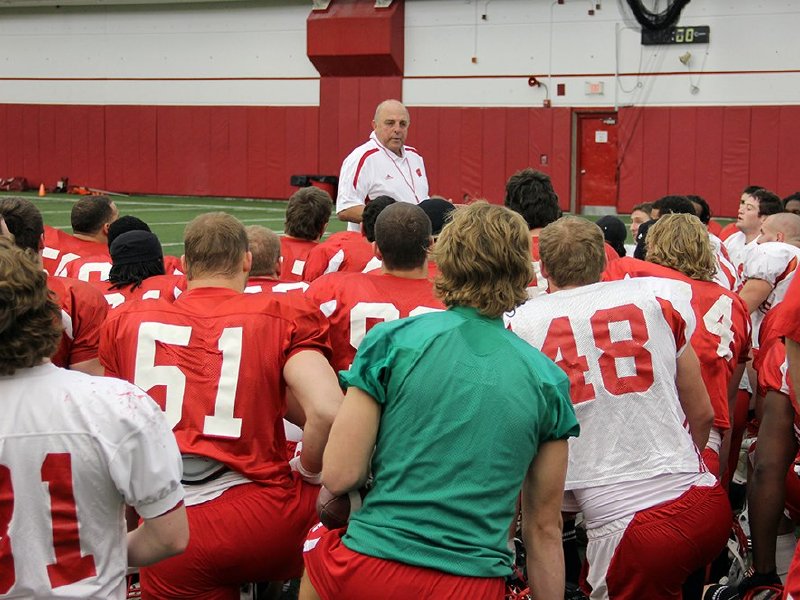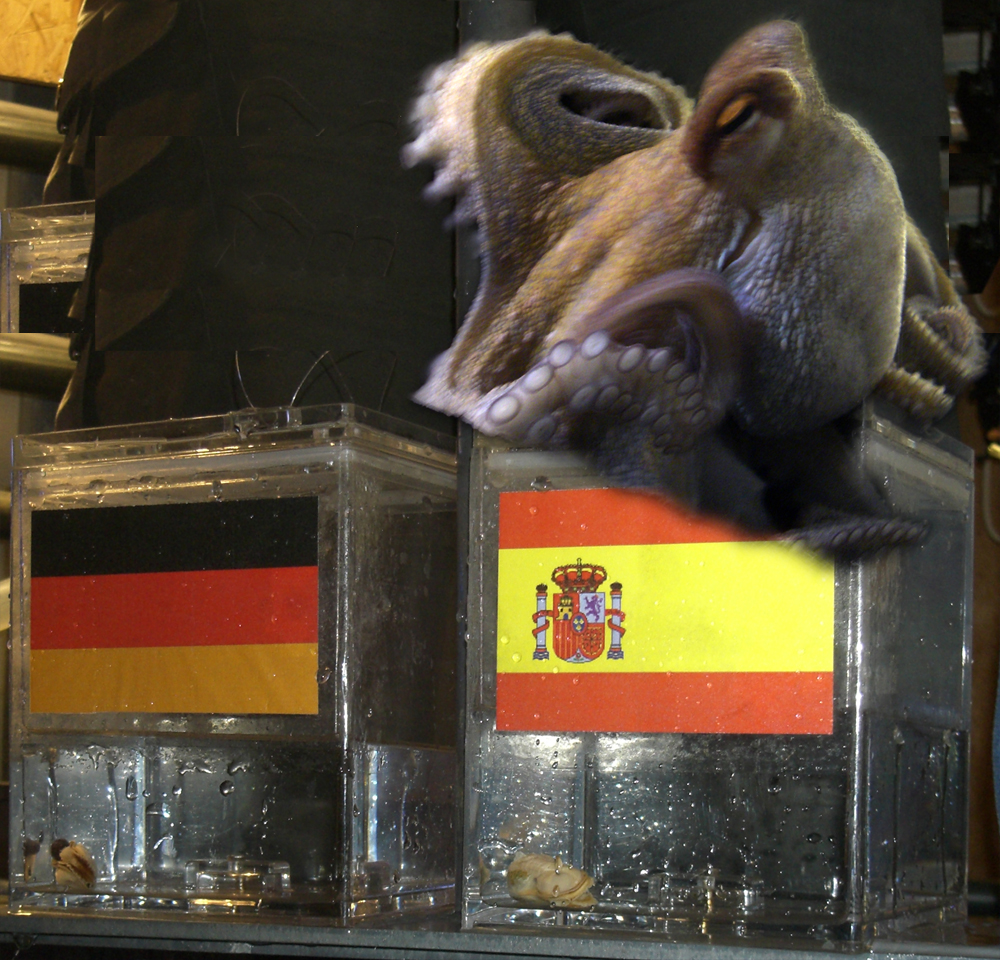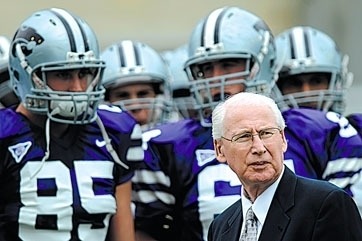Simon Kuper, co-author (with Stefan Szymanski) of
Soccernomics and award-winning columnist for the
Financial Times, has a new book out in the United States --
Ajax, the Dutch, The War: The Strange Tale of Soccer During Europe's Darkest Hour. I interview Kuper on the book below. First, a quick capsule review.
The book is not really a book about soccer, but a book about people in remarkable times viewed through a lens of soccer. I found the book engrossing for this reason. Almost everything you read about World War II is (understandably) about the war itself: the battles, the leaders, the Nazis, the Holocaust. But for most Europeans of the 1930s and 1940s -- most non-Jewish Europeans, Kuper tells us -- the War was taking place against the backdrop of normal life. Sport is a part of that backdrop. How the war influenced and often remarkably did not influence soccer (mainly in Holland, but Kuper also discusses Germany and the UK in some depth) provides a canvas on which Kuper has written a truly unique history.
One other aspect of Kuper's book stands out for me and that is the ephemeral nature of the material he works with. In an afterward Kuper lists many of those whom he interviewed who have since passed away. World War II is quickly fading into history, though legacies remain. Kuper has written a book that helps us keep touch with that history through some of the last voices left who can tell us what happened based on their actual experiences.
Ajax, the Dutch, the War is highly recommended for those interested in history and people first, soccer second. That said, no understanding the history of modern European football will be complete without
reading this book.
Now, on to my interview with Kuper.
RP: In your book you observe that the day that Germany invaded Russia, 90,000 people attended the German league final. You ask “What were they thinking?” You also observe “how little the game was disrupted” during the War in Great Britain. What do you take from the apparent resilience of soccer?
SK: The main thing I learned is that the war
didn't occupy most of people's attention most of the time in most of
Europe. Yes, if you were Jewish or otherwise in imminent danger, then
your life was the war. But in most of western Europe, most people just
didn't live like that from 1939-45. I was very struck by another story
that I tell in the book: at a racecourse in England in June 1940, the
announcer tells the crowd that France has just surrendered. It's pretty
clear that the UK might be next; Germans could start arriving any day;
much of the British army is trapped in France, at Hitler's mercy. But
the racing just continues! What the book showed me was that the notion
we have of people's states of minds in much of Europe in this period
just isn't right. Many of them weren't living the war at all.
Of course the book is also a story about the power of soccer. In 1920,
soccer was still a pretty small-time upper-class pastime in most of
Europe. By 1940 it's a kind of essential of life.
RP: Elsewhere you write of Holland, “If people don’t stop playing sport when their country is occupied by Nazis during World War II, when do they?” Yet, sport is generally absent in our scholarly histories (and not just in WWII). What can we see looking at history through a lens of sport in society?
SK: What sport gave me was a kind of window onto ordinary life, away
from high politics and great battles. Sport is what lots of people,
particularly of course men, are doing and thinking about. It's a great
banal activity. Walter Benjamin talks about this sort of thing: about
how the observer should look in all directions, not just upwards towards
high culture and politics. That's what I was trying to do in the book.
RP: Throughout you express considerable disappointment about the differences between the Dutch history as it is told and the somewhat less romantic reality -- in places you seem even angry. Is this a fair reading of your views? Was this disappointment developed as you researched the book? How have your views evolved since?
SK: Yes I was
angry. It was while researching the book that I realized that a lot of
the stuff I had been taught at school and through popular Dutch books
and movies in the 1970s and 1980s, the whole story of a country where
everyone was in the Resistance, was false. I had been lied to. That was
shocking to me because I'd always had - and still have - a lot of faith
in the Dutch system. I mean, this wasn't the USSR. In the intro to the
US version I describe driving through California with a friend of mine
who tells me I shouldn't be surprised, all countries lie about
themselves. He's quite right and during the writing of the second,
British version (the first version of the book was in Dutch) I came to
terms with my anger to some degree and was able to write more
dispassionately. But not totally dispassionately. This is a subject I
feel emotionally involved in. It's my most personal book so far.
RP: You compare soccer in Holland before World War II to the status of ping pong today. Today, soccer has achieved something that politics or economics has not – a true European union. How did this happen and what does it tell us about both Holland and broader Europe?
SK: It's true that in Europe we play soccer against each other all the time,
and some teams, like Chelsea or Manchester City, are positive European
unions in miniature. And people all over Europe (and the world) support
e.g. Barcelona and Man United. Even when European countries play against
each other, in world cups or Euros, we accept the same set of rules,
and mostly these matches now pass off in a friendly atmosphere; even
Germany is no longer anyone's enemy. So I think soccer has done a little
to create a shared European cultural sphere. Soccer is one of the new
transnational communities that lots of people belong to: e.g. on Twitter
people from all over the world will support a particular club, and will
discuss together the latest incident in big soccer, e.g. the
Clattenburg affair. So soccer - despite the nationalist carnival of the
world cup - does help break down national boundaries.
Of course the European identity itself remains quite weak and isn't
represented in soccer - there isn't and there never will be an EU team. I
wrote in the FT on Saturday that "nobody ever ran out of the house
drunk waving an EU flag". So it's not so much that soccer makes us all
into EU citizens. Rather, it does something to break down national
identities, to make them less significant. E.g. even at a world cup many
Liverpool fans, say, might be more sympathetic to Luis Suarez than to
Wayne Rooney.

Pictured above: English football squad giving Nazi salute in Berlin, May 14, 1938. English diplomats pressured the team to make the salute. Described in Kuper's book.
RP: You write that “World War II was becoming like the American Civil War” as it fades from sight and fewer and fewer from that era are still with us. Yet, an understanding of, say, US college football is incomplete without understanding the continuing legacy of the Civil War. Similarly, you make a case that legacies of the War still exist in Dutch football (and I presume, throughout Europe). Why is it important to continue to recognize these legacies?
SK: I think these
legacies are now waning, as everyone forgets the war. For decades WWII
shaped life in Europe. E.g. Germans had seen that inflation had
contributed to the rise of Hitler, and so first the Bundesbank and later
the European Central Bank (created in the Bundesbank's image) were very
tough on inflation. The very EU project was an attempt by everyone
including Germany to tie Germany into a united Europe to prevent a
recurrence of world war. And because of memories of Auschwitz, overt
racism wasn't tolerated in European political life until after
9/11/2001.
But now all that is lifting as the world war becomes ancient history. So I think those legacies of WWII in Europe are dying.
RP: What about scenes like have been
reported from West Ham-Tottenham over the weekend or the bizarre attack of Tottenham fans in Rome?
SK: I think that in the antisemitic chanting at West Ham, or the attack on
Spurs fans in Rome, the thugs are using Holocaust references chiefly to
give colour, excitement, to a current soccer rivalry. I.e. they are much
more interested in being anti-Spurs than in pursuing neo-Nazi policies.
The talk of war/Holocaust makes today's match more thrilling, to these
people. I think they seize on Holocaust rhetoric because that is the
ultimate form of transgression in our society - it's the easiest way to
be naughty, in other words. I don't think there's any genuine
desire/plan there to have another Holocaust. It's horrendous behaviour
but not actually dangerous, is my take.
RP: You write that “Foreigners know little about the Netherlands, and nothing about what is sung at its soccer matches.” Today, what little Americans know about Dutch soccer might include that they play a rough game (whether accurate or not – many saw
Nigel de Jong and his World Cup judo kick) and that
Jozy Altidore plays for AZ Alkmaar. As more and more Americans become soccer literate, what should they know about Dutch soccer?
SK: The Dutch gave us the dominant mode in global soccer today: the Spanish
passing game. It can be dated back to Cruijff's arrival to play for
Barcelona in 1973. (I go into detail on this in the new Soccernomics,
the one published earlier this year.) Barcelona and particularly
Guardiola evolved Dutch total soccer of the 1970s, added modern pace and
defensive nous; but as Guardiola says, 'Cruijff built the cathedral'.
That was one of the ironies of the world cup final: Holland were beaten
by their better selves, a Dutch-inspired Spain. It's something for us
Dutch fans to be proud of: we don't play the best soccer today, but we
helped create it.
Oh, there's a million more things I could say about Dutch soccer. I
still love it. The only team I really support in soccer is Holland -
except perhaps in that embarrassing world cup final.
Thanks Simon!

.jpg)
































